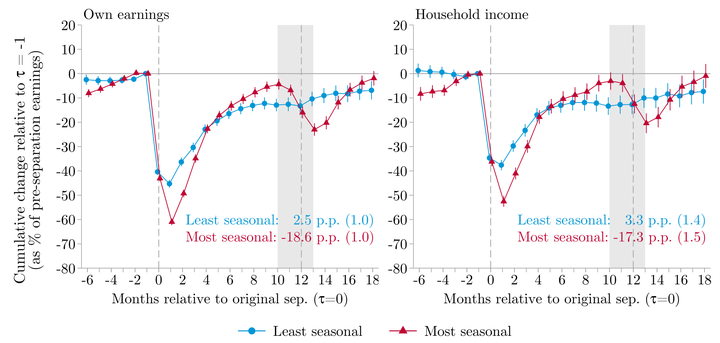Income in the Off-Season: Household Adaptation to Yearly Work Interruptions

Abstract
Joblessness is highly seasonal. To analyze how households adapt to seasonal joblessness, we introduce a measure of seasonal work interruptions premised on the idea that a seasonal worker will tend to exit employment around the same time each year. We show that an excess share of prime-age US workers experience recurrent separations spaced exactly 12 months apart. Examining workers most prone to seasonal work interruptions, we find that they incur large earnings losses during the off-season that are little offset by other sources of income. On net, household income falls by about $0.80 for each $1.00 lost in own earnings.
Type